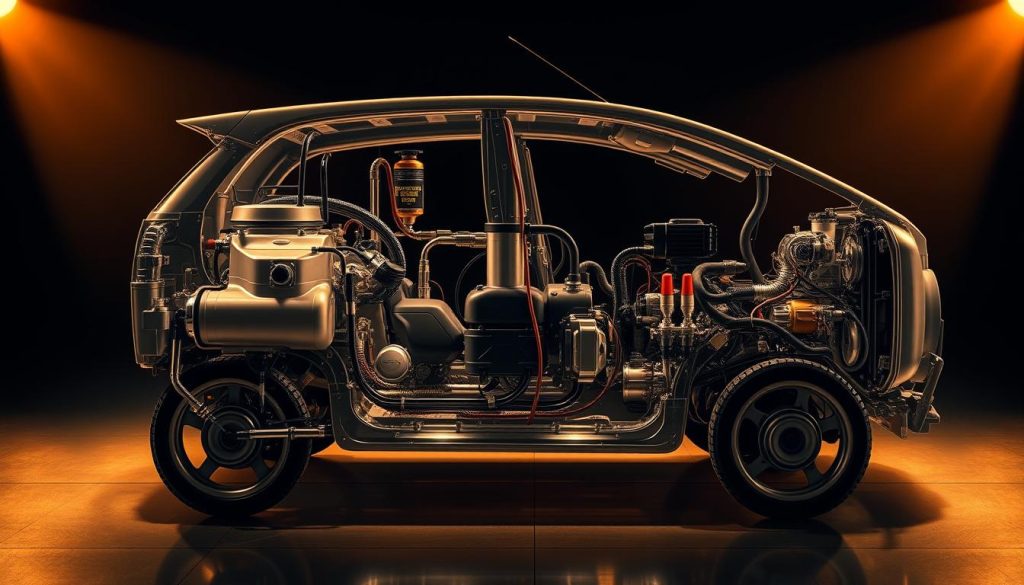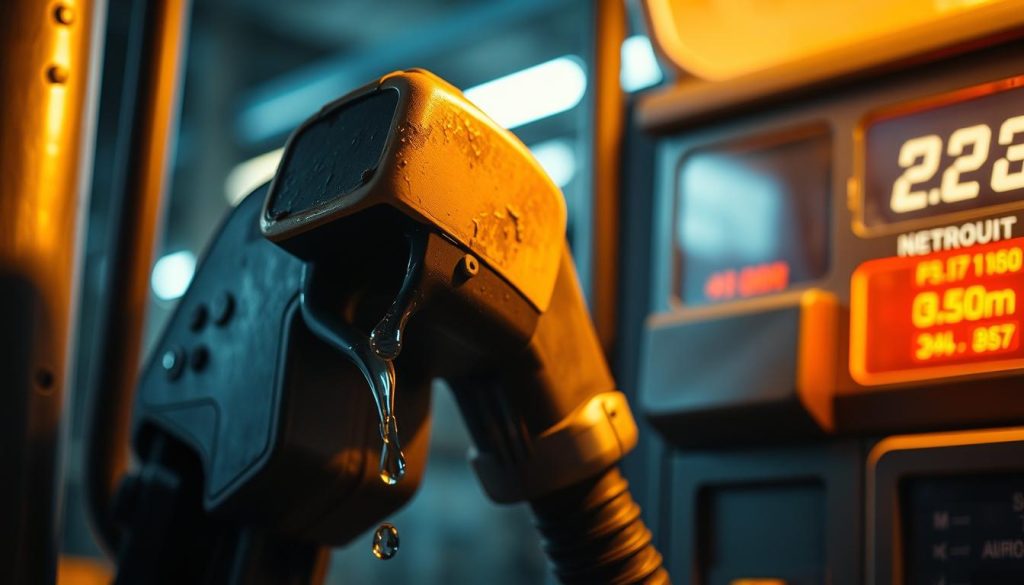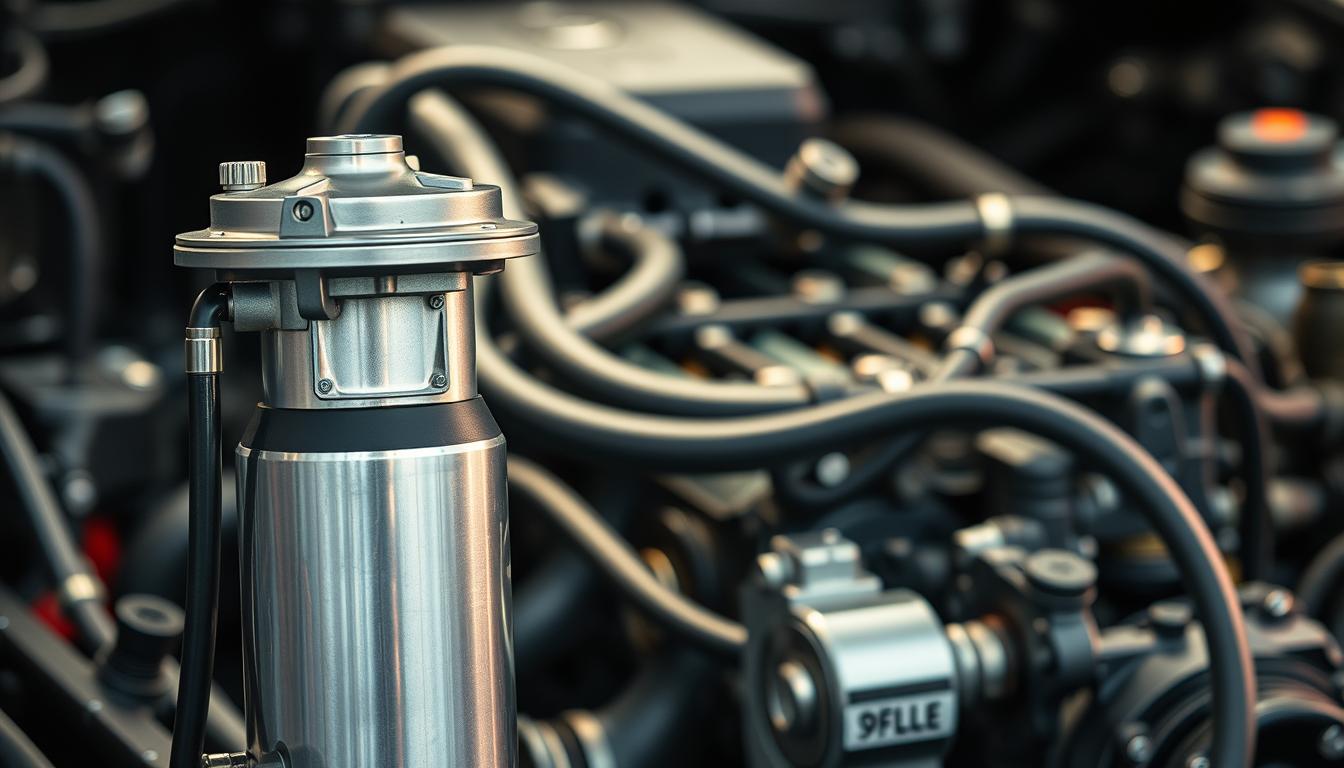The fuel pump is key to your car’s engine. It makes sure the engine gets fuel delivery. If it fails, your car’s performance can drop a lot.
A good fuel pump can last over 100,000 miles. But when it starts to go bad, you might see your car’s performance drop. The fuel pump is called the “heart of your car” because it supplies fuel to the engine.
If your car is acting up, a bad fuel pump might be the reason. At Heaven Automotive, we can figure out and fix fuel pump problems.
Key Takeaways
- Understand the role of the fuel pump in your vehicle.
- Recognize the symptoms of a failing fuel pump.
- Learn how to diagnose fuel pump issues.
- Discover the importance of timely repair.
- Find out how Heaven Automotive can assist with fuel pump repairs.
Understanding Your Vehicle’s Fuel System
Knowing how your vehicle’s fuel system works is key to keeping it in good shape. The fuel system is a complex network that feeds fuel to the engine. This lets your vehicle run smoothly.

The Role of the Fuel Pump in Modern Vehicles
In today’s cars, the fuel pump is very important. Electric fuel pumps are often used. They keep fuel pressure steady, which is crucial for good performance and avoiding hard start problems.
How Fuel Delivery Impacts Engine Performance
Fuel delivery affects how well your engine performs. A working fuel pump makes sure the engine gets the right fuel at the right pressure. If fuel supply is low, your engine might sputter or lose power when you accelerate.
Understanding the fuel pump’s role and its effect on engine performance helps owners spot and fix issues early. This way, big problems can be avoided.
Common Fuel Pump Failure Signs
Knowing the signs of a failing fuel pump can help keep your car running well. A bad fuel pump can make your car run poorly, use more fuel, and even stall. It’s important to catch these signs early.

Engine Sputtering and Unexpected Stalling
Engine sputtering or stalling, often when driving uphill, is a common sign. This happens because the fuel pump can’t keep fuel flowing to the engine. If your engine is sputtering or stalling a lot, check your fuel pump.
Hard Start and No-Start Conditions
A bad fuel pump can make starting your car hard or impossible. If the pump can’t pressurize fuel, your engine won’t get enough to start. If starting your car is tough or it won’t start, your fuel pump might need to be replaced.
Unusual Noises from the Fuel Tank
Strange noises from the fuel tank, like whining or grinding, can mean your fuel pump is failing. These sounds usually mean the pump’s motor is wearing out or there’s a problem inside. If you hear odd noises from your fuel tank, it’s a good idea to check it out.
Loss of Power During Acceleration
A failing fuel pump can make your car lose power when you accelerate. This is noticeable when you’re merging onto a busy road or going uphill. If your car is slow to accelerate or feels weak, a faulty fuel pump might be the cause.
Decreased Fuel Efficiency
Lastly, if your car’s fuel efficiency drops, it could be a sign of a failing fuel pump. A bad pump can make your engine use more fuel, leading to poor fuel efficiency. If you’re using more fuel than usual, have your fuel pump checked.
Conclusion: Addressing Fuel Pump Problems
Spotting a failing fuel pump is key to keeping your car running well. Signs like engine sputtering, hard starts, odd noises, power loss, and bad fuel efficiency hint at a fuel pump issue.
Regular upkeep, like keeping the gas tank full and checking the fuel system, can extend the fuel pump’s life. If you see any signs of a failing fuel pump, get professional help right away.
At Heaven Automotive, our team is ready to tackle fuel pump problems. We offer detailed solutions. Contact us to fix your car’s fuel pump issues and keep it running smoothly.

